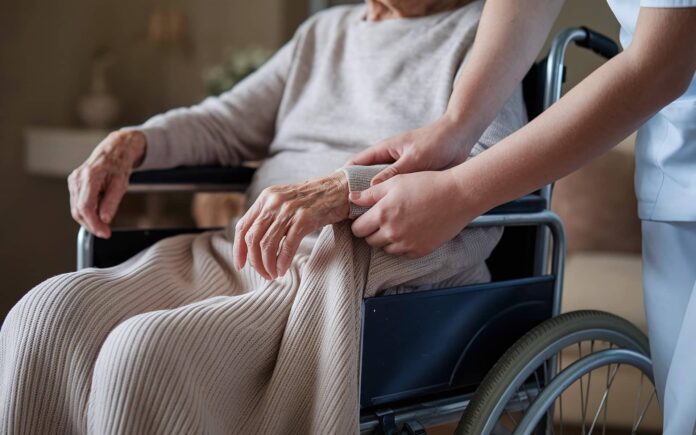In an interview, the president of Upsadi, Didier Daoulas, discusses home healthcare services. He talks about the challenges, the role of this union, and future stakes.
At the end of this month, from September 24 to 26, a national seminar organized by Upsadi (Union of Independent Home Healthcare Providers) was held at the premises of SOS Oxygène. In this interview, the union’s president, Didier Daoulas, discussed the different future challenges.
Can you explain what home healthcare services entail?
“Based on a medical prescription provided by a private or hospital doctor, we go to the home, equip the patient with the necessary material for the continuity of their treatment at home. It is a relatively recent profession, around thirty years old. It started with associations, meaning that patients would leave the hospital and be cared for by associations at home. This is an activity that now represents in France approximately 35,000 people, 2,500 companies, and four million patients cared for at home.
In recent years, hospitals have been overcrowded. Does this service help to alleviate that?
Indeed, it relieves hospitals, which is important. Moreover, it is, above all, more pleasant for the patient to be cared for at home, when the treatment allows it. Finally, it significantly reduces the cost for the community. Home care is on average ten times cheaper than hospital care.
What does Upsadi represent for this profession?
Upsadi is a union that was created twelve years ago, starting in Nice. I mention this because back then, with Armand Pastorel, the president of SOS Oxygène, we collaborated. Several unions existed, but all the small and medium-sized independent providers did not feel represented in that framework. So, we thought, let’s try to create a union to meet the needs and expectations of small members across France. So, with Armand Pastorel, in 2013, we created this union in Nice, initially.
What is your assessment twelve years later?
Today, the union represents around 470 members. That’s quite a progression in 12 years. It’s a constant battle to defend our professions. Unfortunately, today, we realize that the home healthcare provider, although an essential link in the care chain, is not recognized. Therefore, we don’t really have a status. Yet, we care for four million patients.
What are the consequences of this lack of recognition?
We don’t have recognition from public authorities. When there are meetings or work conducted, for example by the ARS, we are often not invited because we don’t fit into the boxes. That is truly our fight and we are genuinely fighting for it.
What is the goal of this 48-hour seminar in Nice?
The objective is to try to figure out how we can change the way we work, focusing on the vision of our profession over the next three to five years. Our role is also to try to bring ideas. We are not just players. Then continue to fight for this recognition with the higher authorities.
To obtain this recognition, shouldn’t you first obtain that of the citizens? Their knowledge of your activity remains vague, doesn’t it?
You’re right! We have made small clips, which have been broadcasted on various media, to show what a healthcare provider is. This has not been sufficient. Tomorrow, if you ask ten French people on the street what a healthcare provider is, they will likely say a nurse or a pharmacist. That’s also a big problem and it’s what holds us back. Once citizens understand our role, they will likely raise their voices to local officials. Hopefully, this time, the subject will be taken seriously, because today, since we don’t have a professional status, we are left out.”


